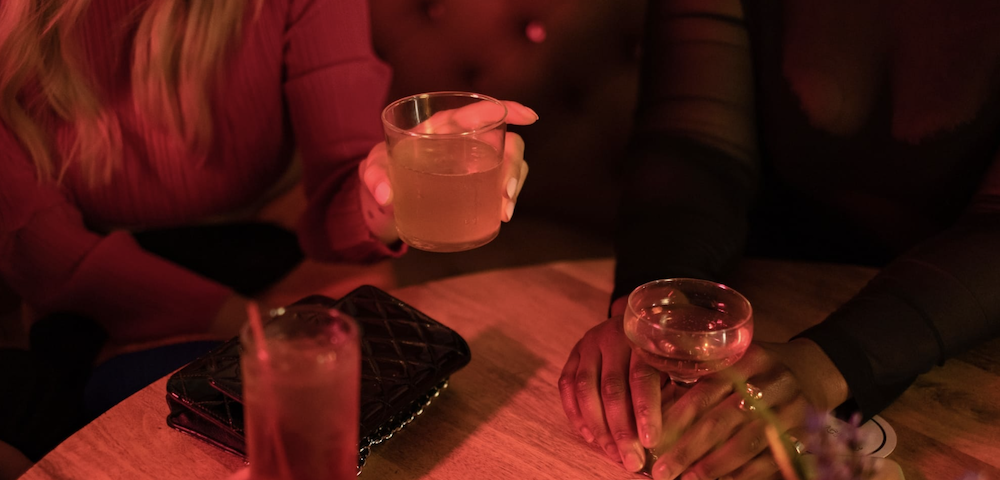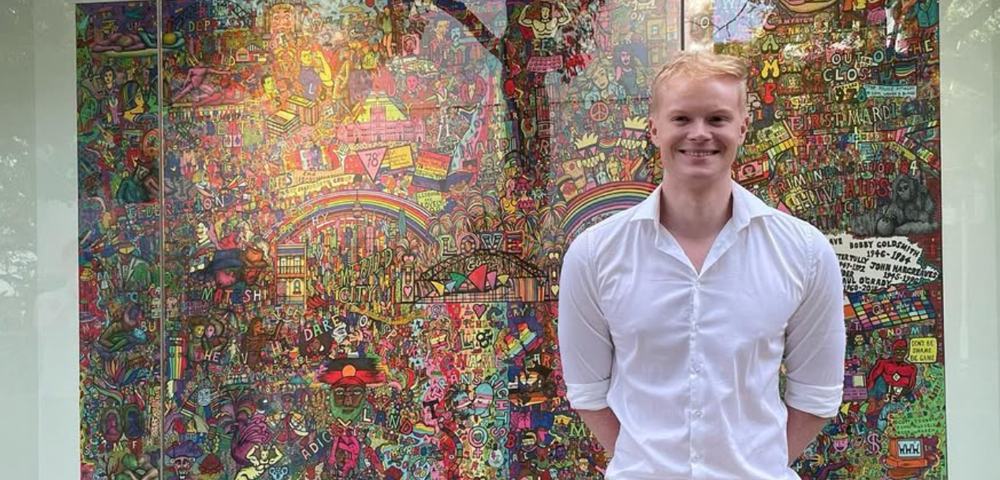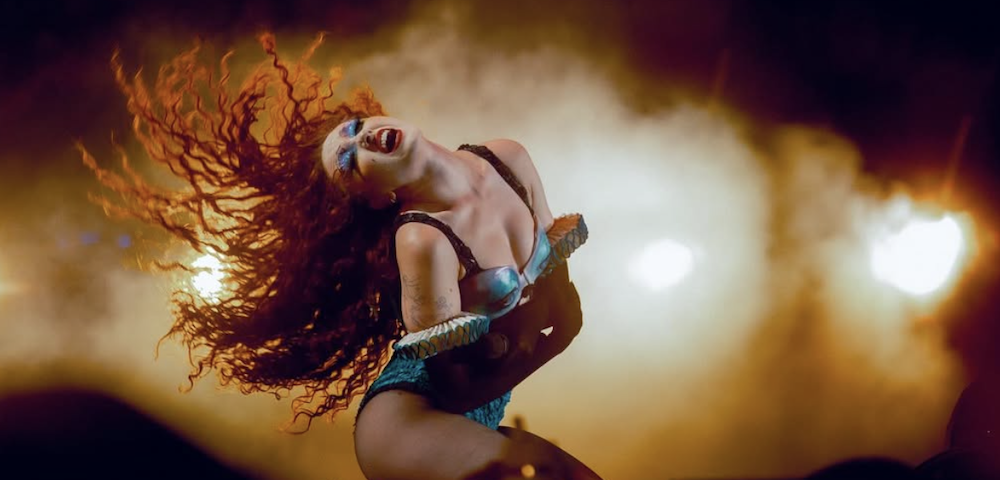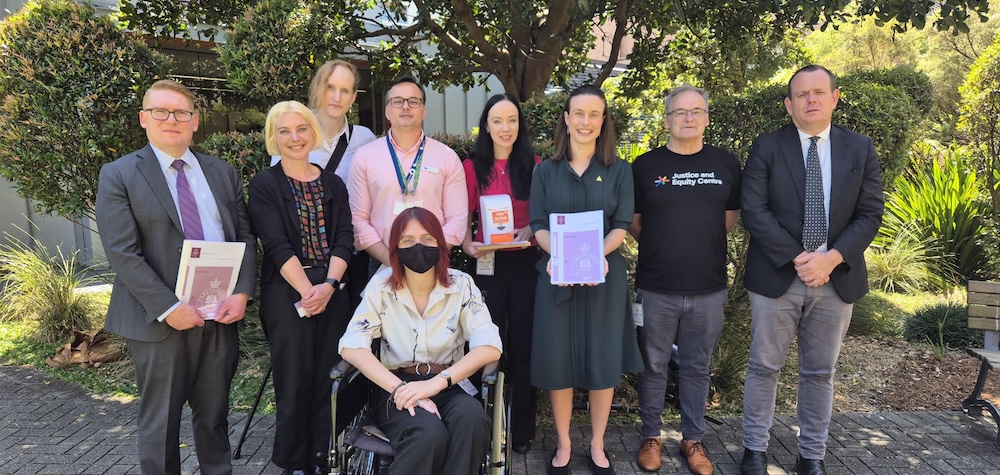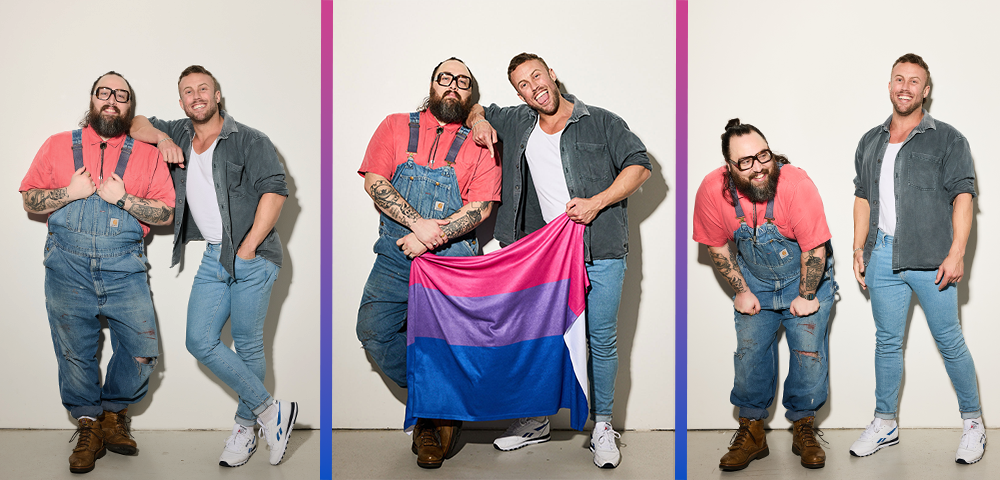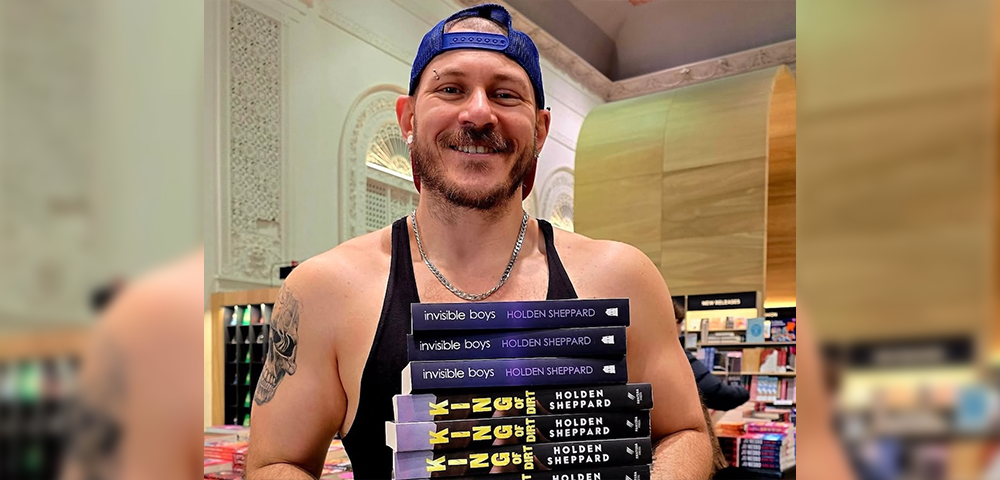
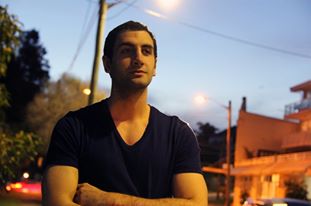
IN the ten years before coming out, I hesitated.
That hesitation took on many forms – delusion (“It’s a phase”), denial (“Nah, sorry, I’m straight”), duplicity (“Mum, I’m spending the night at a mate’s place”), and desperation (“As a society, aren’t we beyond labels? Why do I have to name it?”).
Meanwhile, Google was way ahead of me. If you typed in my name, it would suggest: Will Kostakis gay.
I came out in increments. I wanted the first time I told someone I didn’t meet in a bar or on an app to be special, and by special, I mean risk-free. I made plans with a close, straight friend on the eve of him leaving the country. If it didn’t go well, I knew he would be on a plane to London in no time, and we would never speak of it, or to each other, again.
We drank – me to the point where I felt courageous, and him to the point where feelings didn’t scare him. I lowered my glass, and for one brief, fleeting moment, I didn’t hesitate.
I had more tact than Google, although, now that I think about it, shouting, “Will Kostakis gay,” in a crowded room is probably the most effective way to burst out of the closet. Instead, I polished off my drink, cleared my throat, and in a surprisingly muted voice for how drunk I was, said, “You know that guy who was at my birthday? He was my boyfriend.”
I will remember the conversation that came next for the rest of my life. He asked the right questions, no stupid specifics, no, “Did you like any of us in high school?”
He was mostly curious about the part of my life I had hidden from him. He asked about my ex, the kinds of stuff we did together. And he asked if he had done anything wrong, or said anything to make me hesitate. Afterwards, we said goodnight. He left for a new life in London, and it wasn’t for another year that we even spoke about it again.
In retrospect, that conversation should have been enough for me to initiate the coming-out chain reaction. But still, I hesitated.
As a young-adult author, a big part of my life is touring schools, inspiring kids to write and read. My debut novel, Loathing Lola reads like a nineteen-year-old’s fever dream (fart joke … swear word … boob job … typo), and teen readers connected with it. I was two years into touring it when I was asked to speak to a group of year eights at an all-boys private school in Sydney.
Partway through my standard talk, I heard the Grindr message alert percussion.
I hesitated. First, I panicked. I thought I’d left the app open. Then I realised I had deleted the app. As I stammered through the next sentence, my eyes darted from teacher to teacher. All of them were female. I scanned the room and saw him, the kid in the third row, on his phone. The boys around him were none the wiser, and the staff had no idea this kid – he couldn’t have been older than fourteen – was navigating the world of gay sex in the middle of English.
To say that the sex education for same-sex attracted kids in Australia is lacking is an understatement. I mean, I learnt the gay fundamentals – from the mechanics of sex to the reality of HIV testing – from older partners. I powered through my speech, but I couldn’t shake the Grindr Worst-Of playing in my head. I just wanted to tell him to delete the app and have a childhood first. I wanted to tell him everything he needed to know to be equipped for life as a gay man, everything I wished I didn’t have to learn from an older partner.
But I couldn’t. There was no way to pivot into a conversation about gayness because, as camp as it was, there were no LGBT characters in Loathing Lola. Writing it as a teenager, I was trying my hardest at performative heterosexuality.
So when I wrote my next book, I hesitated less. I wrote in a gay best friend, hardly revolutionary, but a big step for me. The First Third is about a boy named Bill struggling to carve his own identity in a small but potent Greek family. While readers assumed the Greek named Bill was the stand in for me, Lucas was my Trojan horse. I wrote about my gayness, and nobody had a clue.
Except Google. Google knew.
As a young-adult author, a big part of my life continued to be touring schools, inspiring kids to write and read, only now, if the rare opportunity arose, I could hide behind my character’s sexuality, and talk about my own.
I imagined that when I did talk about LGBT identity, it was for the benefit of the kids like that year-eight student. I would never raise Lucas’s sexuality myself (I was braver, but I wasn’t that brave), but if a student mentioned it, and I read the room as an accepting one, I would pivot.
I was invited to speak to a year ten cohort that had just completed a study of the book. On my way in to speak to the girls, unprompted, a teacher said, “Oh, and please don’t mention the gay character.” The window to take it personally passed within seconds. There were thirty-odd girls staring at me, I didn’t have time to unpack it and consider what it meant for me, a closeted twenty-something, to be told not to mention homosexuality. So I gave my standard talk. They asked questions, and always keen to see what teens think, I asked some back. I asked who their favourite character was.
One girl said, “Lucas.”
And I hesitated. I tried to pivot away from the gayness. I asked their favourite scene.
The same girl raised her hand. I waited for somebody else to contribute. Nobody. Ugh.
“I loved the scene where he spoke about losing his virginity to a boy.”
The teacher sank into her seat, and there was no chance I could pivot. I didn’t mind. I probably wasn’t ever going to be invited back, and I was curious. I had written Lucas for the gay or questioning teens stumbling onto apps like Grindr and trying to make sense of their sexuality, and it had spoken to – I’m assuming – a heterosexual teen girl. I wanted to know why.
“It made me understand my best friend Sam a little better,” she said.
When we talk about texts or lessons with LGBTQI themes, some people (politicians, teachers, parents) approach it like we are providing a manual, as if simply exposing teens to diverse human experiences will make them change who they are. In reality, exploring LGBTQI themes in schools helps questioning teens better understand their place in the world, and encourages their straight peers to better understand them.
Leaving that classroom, I was inspired. When I wrote my next book, I hesitated less.
I hesitated less in my personal life too. I opted for a They Ask, I Tell policy. When nobody asked, I started telling. If they asked about girls, I corrected them. If I avoided it and said “partner”, I pushed myself to use masculine pronouns.
When Mum asked, I told her. She took a breath and asked for a moment. She took several. Then she sighed, and offered matter-of-factly, “I always thought your father was a bit of a poof.”
I erupted in laughter.
Coming out to her was not as I had imagined it, but I should have imagined it differently, because there was nothing surprising in her reaction. She approached it as she did everything – with directness and a catty dig at Dad.
And by anticipating or fearing anything else, I had underestimated her.
I had fewer and fewer reasons to hesitate, but I still didn’t have the confidence in myself that Google appeared to have. I told friends and close family slowly over the course of years, but most of my Facebook friends didn’t know, and professionally, I wasn’t out.
When I wrote The Sidekicks, I considered my own hesitation. I wondered, when people my age and younger were coming out in YouTube videos to the embrace of millions, why had I hesitated to tell my mates? To tell my mum? I wrote about it, and the result wasn’t just a character who “happened to be gay” (the safest of all the LGBTQI characters – the one that is as LGBTQI as a heteronormative culture is comfortable with), he was gay, and he was … hesitating.
As the release date approached, I knew it would be hypocritical to have a book to my name where a main character discovered the importance of embracing his sexuality, while I still hid in the closet myself. So in a quiet, careful blog post before release, I came out.
The post was largely ignored until a school that had booked me to launch The Sidekicks during lunch rescinded that offer because of it. They were not aware of the gay subplot of The Sidekicks, but my sexuality meant any presentation on that book would no longer be age-appropriate …
It had taken ten years to whittle away my hesitation. People in my life had proven, time and time again, that my hesitation was unfounded, that nothing really changes when you’re gay. I was quiet, I was careful, but that was not enough. I worked with children, and relied on religious organisations, and my livelihood was now at risk.
Tiptoeing out of the closet carefully, quietly, made no difference.
But change doesn’t happen in a moment, it happens over time. I didn’t speak up for the year-eight boy on Grindr. I didn’t speak up and shut down the year-ten teacher who didn’t think her students should discuss the gay themes in a text they’d just read. And I couldn’t think of anything worse than not speaking up then.
I shed the last of my hesitation. In an instant, I went from “author Will Kostakis” to “gay author Will Kostakis”, as in Catholic school tells gay author Will Kostakis his speaking visit no longer ‘appropriate’. There was a time when a headline like that would have been my biggest fear. Now, I laugh (and not only because Fairfax coupled it with a photo of me with my come-hither eyes and aspiring-Daddy beard). For every school that gave me grief, ten welcomed me and my work with open arms.
Coming out in the national press isn’t a cure-all. The hesitation isn’t gone for good. It resurfaces, just before I pivot to gay stuff in my talks. Sometimes, I chicken out. Hell, I chickened out last week. But when I do talk about my experiences, I never regret it. The conversations it inspires remind me of that night when I first confided in my mate. They ask all the right questions, no stupid specifics. They’re mostly curious about the parts of human experience some schools hide from them.
As resistant as some people in power may still be to the way we live, and the way we love, kids do not give a shit.
And it gives me hope that they won’t spend ten years hesitating.
Will Kostakis is a popular, award-winning young adult author. To read more of his writing, visit his website WillKostakis.com or buy one of his books – The Sidekicks, The First Third or Loathing Lola – from a store near you




